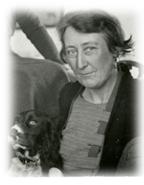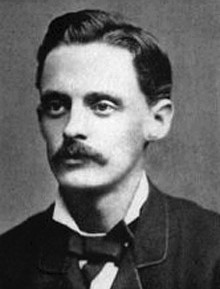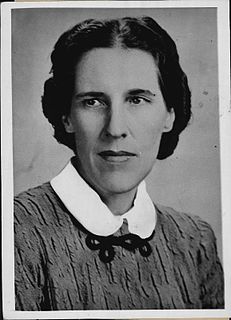A Quote by Victor Turner
Liminality may perhaps be regarded as the Nay to all positive structural assertions, but as in some sense the source of them all, and, more than that, as a realm of pure possibility whence novel configurations of ideas and relations may arise
Related Quotes
Perhaps bacteria may tentatively be regarded as biochemical experiments; owing to their relatively small size and rapid growth, variations must arise much more frequently than in more differentiated forms of life, and they can in addition afford to occupy more precarious positions in natural economy than larger organisms with more exacting requirements.
The so-called ‘crank’ may be quite original in his ideas. … Invention, however, in the engineering sense involves originality; but not that alone, if the results are to be of value. There is imagination more or less fertile, but with it a knowledge of what has been done before, carried perhaps by the memory, together with a sense of the present or prospective needs in art or industry. Necessity is not always the mother of invention. It may be prevision.
By "essence" I understand a universal, of any degree of complexity and definition, which may be given immediately, whether to sense or to thought.... This object of pure sense or pure thought, with no belief superadded, an object inwardly complete and individual, but without external relations or physical status, is what I call an essence.
The individual in the ordinary circumstances of living may feel more unreal than real; in a literal sense, more dead than alive; precariously differentiated from the rest of the world, so that his identity and autonomy are always in question.... He may not possess an over-riding sense of personal consistency or cohesiveness. He may feel more insubstantial than substantial, and unable to assume that the stuff he is made of is genuine, good, valuable. And he may feel his self as partially divorced from his body.
Before I begin a novel I have a strong sense of at least one central character and how the story begins, and a more vague sense of where things may wind up, but at some point, if the novel is any good at all, the story and characters take on lives of their own and take over the book, and the writer has to be open to that.
However we may flatter ourselves to the contrary, our friends think no higher of us than the world do. They see us through the jaundiced or distrustful eyes of others. They may know better, but their feelings are governed by popular prejudice. Nay, they are more shy of us (when under a cloud) than even strangers; for we involve them in a common disgrace, or compel them to embroil themselves in continual quarrels and disputes in our defense.
Brutes abstract not. -- If it may be doubted, whether beasts compound and enlarge their ideas, that way, to any degree; this, I think, I may be positive in, that the power of abstracting is not at all in them; and that the having of general ideas is that which puts a perfect distinction betwixt man and brutes, and is an excellency which the faculties of brutes do by no means attain to.
































